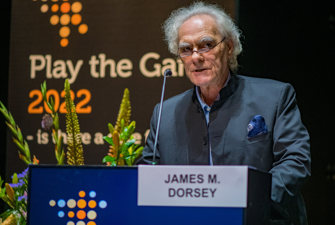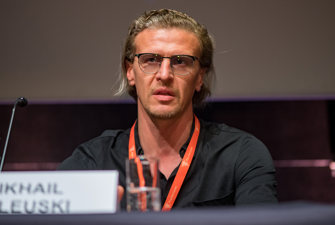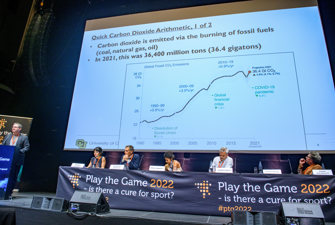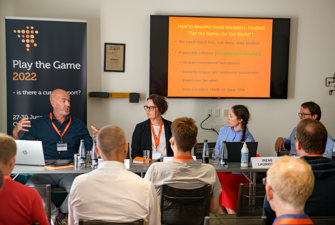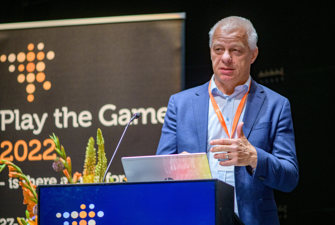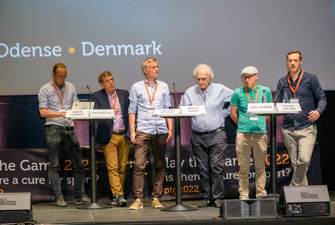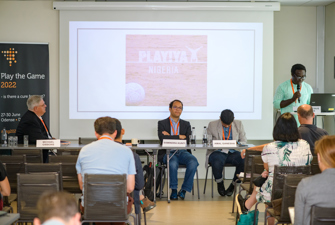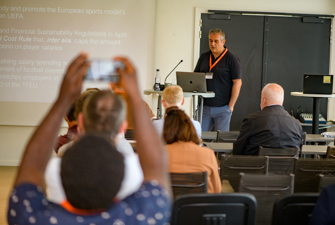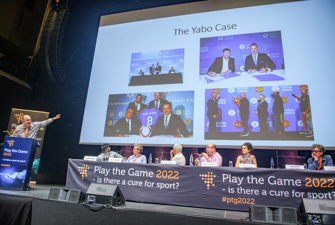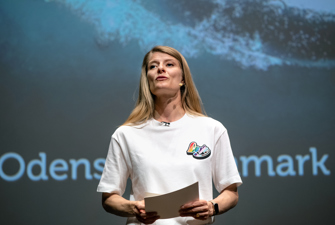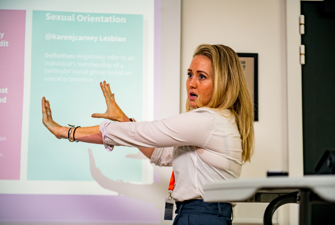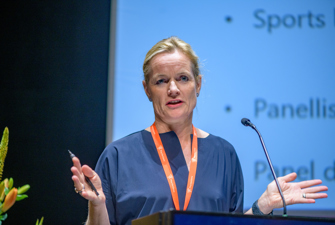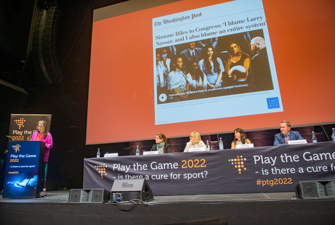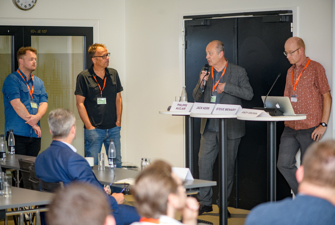It is important that FIFA’s world cup in Qatar gets a human rights legacy
Human rights and labour groups, fans, unions, and football federations are working to ensure that people who suffered human rights abuses during preparations for the World Cup in Qatar are not abandoned after the tournament is over.
The Qatar 2022 FIFA World Cup should be utilised to provide a legacy for human rights in the Middle East, delegates at Play the Game in Odense heard at a session on the conference’s first day.
Speakers outlined that although the tournament had been awarded to the Gulf state on the back of a corrupt voting system, it was important not to abandon people in the region who had suffered human rights abuses and deaths in connection to the tournament after it is over.
“Human Rights Watch, Amnesty International, FairSquare and more than a dozen global unions, fans, human rights and labour groups, are asking FIFA and Qatar to set aside a multi-million dollar legacy fund to compensate workers and their families, and to improve protections with a prominent migrant workers centre,” said Minky Worden of Human Rights Watch (HRW).
Worden pointed out that when it moved the 2022 World Cup to winter, FIFA recognised the dangers of exertion in 50 degrees heat. Yet migrant workers were expected to continue to labour in such heat. “There was no concern about them,” she said.
Calls for FIFA to set up a legacy fund to help workers
HRW and Jesper Møller, Chairman of the Danish Football Union (DBU), are involved with a UEFA Working Group on Human Rights with the Building and Woodworkers International (BWI), Amnesty International, the International Labour Union (ILO) and other football federations.
A meeting was held last week in Qatar, and moves are in place for the ILO and BWI to retain permanent offices in Doha.
“The simplest ask that’s on the table for FIFA and Qatar is to set this up,” Worden told Play The Game after the session.
“There is always a legacy fund, so there’s precedent for it in the FIFA system. There is already an insurance fund, but you have to be in the country to claim. So that doesn’t help any of the families. FIFA has set up a grievance mechanism, but you have to be able to file a grievance online,” Worden said.
“The question is what is possible and what’s available. How about a fund to get money to those families that are facing abject poverty, child labour and child marriage now that the family breadwinner is dead?” said Worden.
Media spin more important than solving the issues
Speakers mentioned that media coverage of human rights abuses continuing today has led the Supreme Committee for Delivery and Legacy, which is responsible for the delivery of the tournament, down a defensive path rather than engaging in solving the problem.
Benjamin Best, a journalist who has done much to expose abuses of workers delivering the tournament, said that internal communications exposed by Abdullah Ibhais had illustrated that the Supreme Committee considered PR spin more important than engaging with the workers to sort out these issues.
And Ibhais’ reward? A five year prison sentence that was later reduced to three years, after a trial in which Amnesty International states he was forced to sign a pre-written confession without access to a lawyer.
Best outlined that this focus on fighting media coverage rather than engaging with the problem was evident during a December visit to Qatar. “Two jeeps followed me around for three days,” he said.
He also produced evidence that Qatar is still trying to shield its 2022 migrant workers from the world’s gaze. A state directive states that all migrant workers should leave Qatar during the World Cup. Best told Play the Game that the directive does not make it clear if they will receive their due wages before being asked to leave.
Human rights and sportswashing
Responding to a question from the floor, author of the Middle East Football Blog James M. Dorsey said that Qatar had been caught out by the focus on human rights.
“They were taken by surprise”, he said. “They thought they would be fed for their success. And, they made the strategic mistake that they thought it would all blow over.”
A hot topic of debate was whether the media spotlight on Qatar was a sign of bias and bigotry, as other countries have also been guilty of ‘sportwashing’. Møller, DBU Chairman, said that a definition was needed as to what constitutes ‘sportwashing’.
“Sportwashing is nothing new,” said Dorsey. “One reason it is more prominent is that diplomacy has changed”, said Dorsey. “Diplomacy is no longer diplomats, pinstripes and foreign ministries. It’s cultural. It’s public. It’s sports.”
James Corbett, journalist and moderator, pointed out a report about worker abuse in the Financial Times, which involved a whistleblower who was afraid to lose her job through speaking out about low wages, hours being cut at short notice, sexism, racism, homophobia and bullying. The company, Noma. The country? Denmark. Should Denmark be stripped of the right to bid to host the UEFA 2025 Women’s European Championships?
“Each country should have the right to host a tournament, so long as they do it under a human rights framework,” said Worden.
She pointed out that one of the last actions of former FIFA President Sepp Blatter was to commission professor John Ruggie and Shift to conduct a human rights assessment.
It was pointed out that FIFA didn’t consider human rights at all when awarding the 2022 World Cup to Qatar. It now has a human rights framework in place and must consider human rights when appointing tournament hosts. That can be considered progress.
